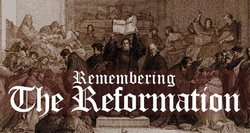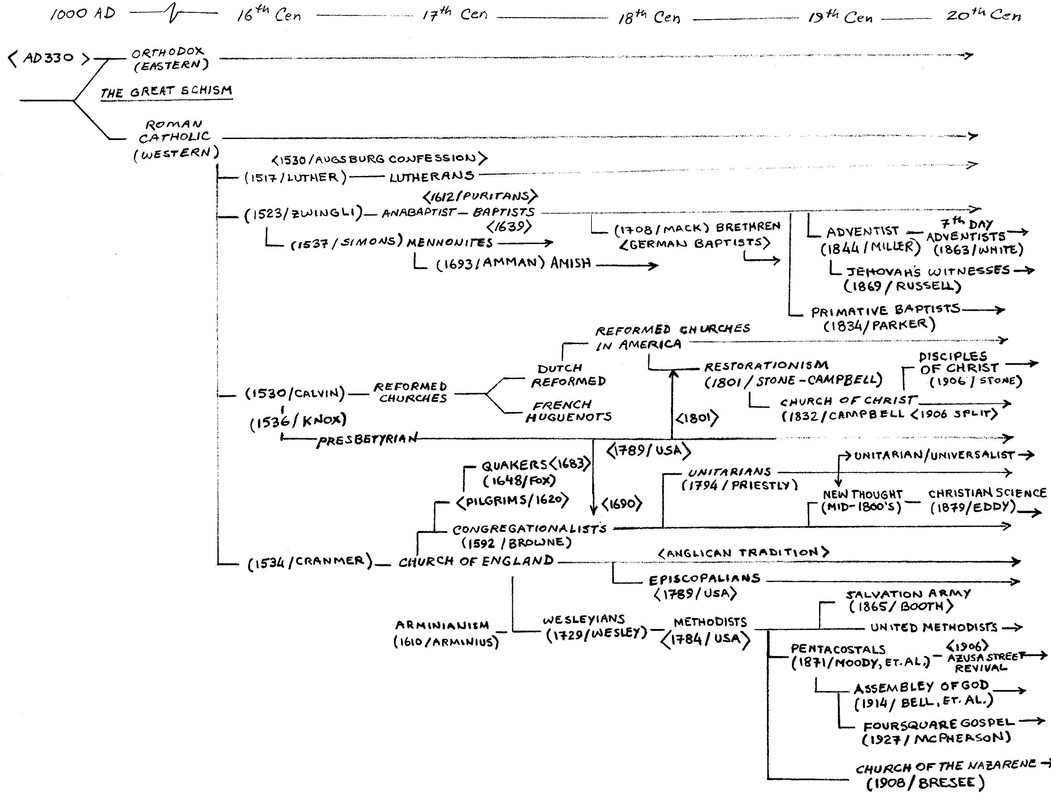
Now I'm no fan of Halloween. Personally I start listening to Christmas music in September and wish all the costume shops would stop taking over perfectly vacant storefronts every autumn. I find no redemptive value in giving my neighbors opportunity to dress up as witches and zombies to scare my young and impressionable children into a month of nightmares. That said, Halloween is nowhere near as dangerous as the Protestant holiday on October 31, Reformation Day.
The Church Divided and Always Dividing
The very term "reformation" in Reformation Day can be misleading. How? Martin Luther and other reformers may have intended to reform the church. But they failed. They ended up dividing it.
When you translate the Reformation's Latin motto reformata et semper reformanda ("Reformed and always being reformed") into its practical consequences, it becomes: "Divided and always being divided." I've never heard anyone quote it that way, but it is the natural outcome.
Why is that the case?
Mass Bible Misinterpretation
The driver behind Protestant church divisions is the shared belief in the private interpretation of Scripture. For 1,500 years of the church's life, Jesus followers received the tradition of the prophets and apostles through appointed leaders. Following Jesus did not require the personal reading and study of the Bible. Can you imagine that? Personal Bible reading is a brand new development in the last quarter of the Christian faith.
Why the change? The Reformers recognized the problem of centralizing authority in a select group of priests, bishops and popes. So they took action. Or as I would say, they overreacted. Martin Luther launched a mission to get a Bible in every person's language and home. If everyone had a Bible to study, then Church leaders could no longer make up bad ideas and say, "The Bible says so." There would be accountability. The problem is: now everyone could make up bad ideas and say, "The Bible says so."
The unintended negative consequences of putting a Bible in everyone's hands are felt everyday. Instead of clergy having the exclusive right to interpret the Bible however they choose, now every person with a Bible can make up their own faith. And we have.
Now every person with a Bible can make up their own faith. And we have.
Proud Protestantism
You may be uncomfortable with my portrait of the Reformation. You may be asking: How could it be bad for everybody to have their own Bible? Isn't it a sacred and noble good to translate the Bible into every language so all people can read it? If by those questions you actually mean--isn't it good for all people to gain introduction to Jesus, then it is good. If you mean--everyone should read their Bible and determine its meaning between them and God, then I find it arrogant.
The apostle Paul made it clear that God appointed teachers and pastors and prophets to lead the community (Ephesians 4:11-13). He employed Jesus' same model of training young men like Timothy who would faithfully pass it on to the next generation (2 Timothy 2:2). We were not meant to inject Western individualism into the community of faith. "Me and Jesus and the Bible" is not all you need. God is building a community. All parts are essential, and not everyone is a part of those trained and gifted to interpret the Scriptures. I know it's hard to hear, but the "priesthood of all believers" doesn't mean we all have equal understanding of the Bible; it simply means we have equal access to God.
There is a healthy place between individualistic Protestantism that divides and elitist hierarchies that deceive. We must pursue it. Protestants must humbly relinquish their pride in personal Bible interpretation, knowing it has caused the majority of church splits. The more people have been given the chance to determine the meaning of the Bible for themselves, the more church divisions have accelerated in the last 500 years.
We cannot blindly celebrate the success of Protestantism on Reformation Day. Unintentionally, it has crushed Jesus' dream for future believers "that they may all be one" (John 17:21). If you celebrated Reformation Day this past week, then please spend the next month learning how to more "accurately handle the word of truth" (2 Timothy 2:15). Please be careful not to use personal Bible interpretation to drive one more wedge between the family.







 RSS Feed
RSS Feed
